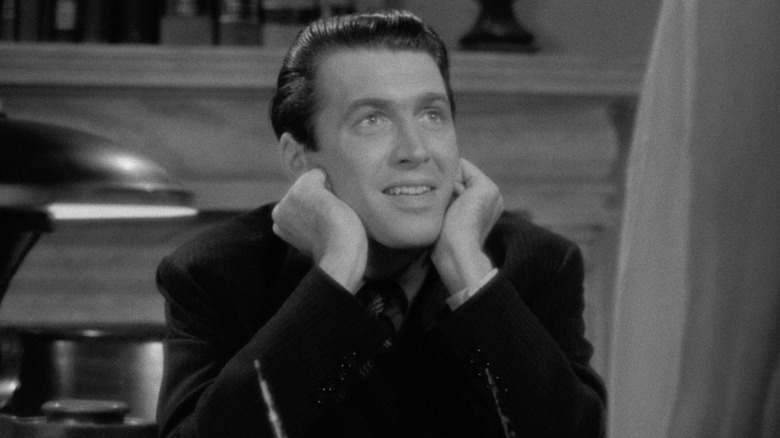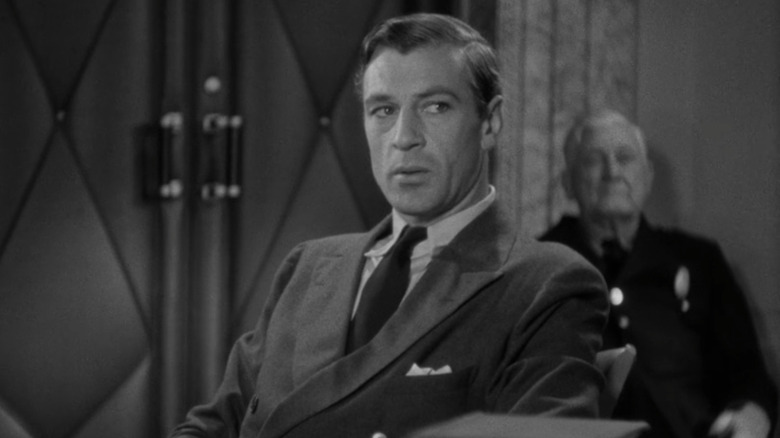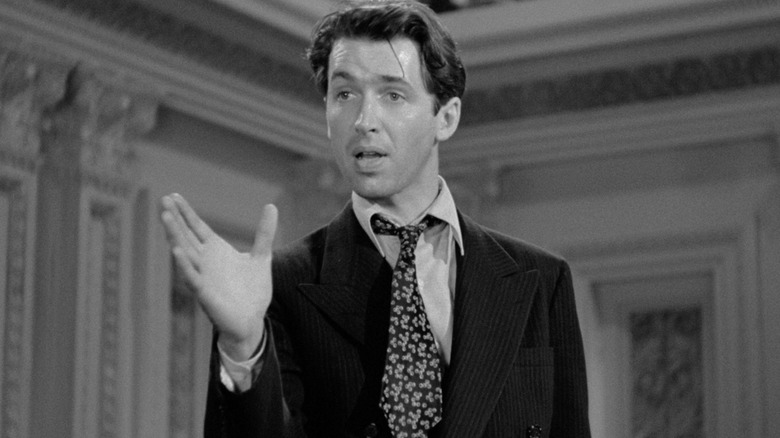
With certain cinematic performances, we could not possibly fathom another actor in the same part. Only Bette Davis could have played Margot Channing in "All About Eve." Only Bruce Willis could have played John McClane in "Die Hard." Only Samuel L. Jackson could have played Jules in "Pulp Fiction." Of course, the reality is this isn't true. Countless actors audition and lose out on parts they would be perfect for all the time because of a variety of random reasons completely out of their control, yet when see a transcendent performance, we still believe the actor has performed magic in front of us. The filmmakers got the one person in the entire world made to play this particular character.
For me and many others, one such performance is James Stewart's Oscar-nominated turn as the titular character in Frank Capra's "Mr. Smith Goes to Washington." The notion of Stewart as a folksy, good-natured fighter for the little guy solidified itself in Jefferson Smith, the Boy Scout leader appointed to the United States Senate as a patsy, and it is the film that took Stewart from a guy the studios weren't entirely sure what to do with to one of Hollywood's greatest leading men of all time.
Stewart being the perfect choice for "Mr. Smith Goes to Washington" was not immediately apparent to the folks at Columbia Pictures, who produced Capra's film. In fact, the whole movie was originally supposed to be a vehicle for a different actor Frank Capra was to reunite with.
What If Mr. Deeds Went To Washington?

Three years before the release of "Mr. Smith Goes to Washington," Frank Capra won his second Academy Award for Best Director for "Mr. Deeds Goes to Town." Thematically, it bears a striking resemblance to "Mr. Smith," as it's about a good-natured fellow who gets brought into a new world to be taken advantage of by elites. In "Mr. Deeds," the world is New York's upper crust when the titular Deeds inherits the estate of his late uncle, worth about $20 million. He becomes the pawn for the greedy fat cats around to maneuver in order to get that money. It even costars Jean Arthur as a woman looking to take advantage of this yokel but who eventually falls for his folksy charm.
That film starred Gary Cooper, who was nominated for an Oscar for his performance. When Capra hopped aboard "Mr. Smith," he envisioned it as a sequel to "Mr. Deeds," hence the similar title. Whether it was meant as a direct or spiritual sequel is fuzzy, but Cooper was to be the lead. After some thought, Capra felt Cooper was a little long in the tooth for the role. Recounted in the book "James Stewart: Behind the Scenes of a Wonderful Life" by Lawrence J. Quirk, Capra said of Cooper playing Jefferson Smith:
"This boy had to get across that his strength was as the strength of 10 because his heart was pure, or a sure and solid variation on that beloved old cliché, but Cooper at that point was too experienced and sophisticated, for all his honesty and directness, to get across."
So Capra turned to James Stewart, who he had just worked with on "You Can't Take It with You," and solidified Stewart's movie star status.
Unlocking The Magic Of James Stewart

Prior to "Mr. Smith Goes to Washington," James Stewart was someone MGM wasn't entirely sure what to do with. He had leading man looks but didn't have a personality that was cool or suave. If he got leading roles, it was because MGM loaned him out to other studios. In 1938, he was loaned out to Columbia for Frank Capra's "You Can't Take It with You," which won Best Picture. The movie did a lot to raise Stewart's profile, but the film is still very much an ensemble picture. Stewart is third billed behind Jean Arthur and Lionel Barrymore.
"Mr. Smith Goes to Washington" was another loan out to Columbia, but this time he was the titular character and given a leading role that perfectly suited his strengths as an actor. It taps into Stewart's warmth, openness, and humor so well that the character basically became synonymous with the man. Character actor Thomas Mitchell, who costarred in this and "It's a Wonderful Life" with Stewart, said of the actor:
"He was the most naturally gifted actor I ever worked with ... I don't think he ever took an acting lesson — it came from forces deep within him; there was an authentic passion in that man, and he made you feel that he meant everything he supposed to be feeling and saying — meant it all, deep deep down. As a result, Frank [Capra] just had to turn the camera on him and let him go. The result was magical!"
Stewart got nominated for Best Actor and won the Oscar the following year for "The Philadelphia Story," and he grew into a true legend of Hollywood's Golden Age. Had Gary Cooper starred in the picture, we might have been deprived a movie star.
Read this next: Alfred Hitchcock's 20 Best Films Ranked
The post James Stewart Wasn't The Obvious Choice For Mr. Smith Goes To Washington appeared first on /Film.
0 Commentaires